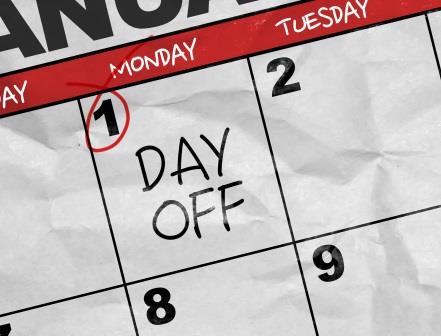Put yourself in the shoes of a criminal.
If you were trying to steal jewelry without anyone immediately noticing, when and how would you do it?
Robberies are about being noticed through force or fear, so that is too brazen to go unnoticed. Sneak, distraction, and switch thefts take a well-orchestrated effort to pull off, so that may be too difficult for most people to accomplish.
However, you notice that a jeweler has changed their hours for the holidays or a special event. After a few weeks of casing, it becomes clear that the physical, electronic, and procedural security of this particular jewelry business makes them an easy target during the planned absence from their regular routine.

Of course, this is all hypothetical, but among robberies, burglaries, theft, and off-premises crimes, burglaries were the only type of crime to see a rise in incidents in 2015 compared to 2014.
The Jewelers Security Alliance noted in their Annual Crime Report that 256 incidents were reported last year versus 244 in the prior year, a 4.9% increase.
As burglaries targeting safes drop and front-door entry points become even more common, it signals that jewelers need to be more cautious when it comes to shutting down business for the day.
Knowing how to protect your jewelry business outside of normal hours doesn't have to be complex. Covering these two areas can vastly improve your security:
Make sure your alarm is working properly
We’ve discussed it before, but if your alarm uses AT&T 2G wireless networks, it won’t work by 2017. Many alarm companies use AT&T’s networks for their machine-to-machine communications, so the first thing you should do is check to see that yours will continue to work properly.
After you’ve verified this, don’t take it for granted. Sophisticated criminals will signal false alarms so many times that you start to ignore them and stop responding - this is precisely when burglaries are likely to occur.
The bottom line is that you need to respond to each and every alarm signal and if you notice a trend of false alarms, notify your local police department. Inform them that you have reason to believe criminals may be attempting to stage a burglary and you would appreciate extra attention.

If your business isn’t opening due to the fact that you will be unavailable – and therefore not able to respond to an alarm – let the police know that as well.
You should also provide them with your alarm company's contact information and pass it along to a trusted friend or neighbor so they can respond in your absence. Just as when you respond to an alarm, inform anyone that is covering for you to follow the same procedure you normally would.
Do not enter the premises until after the police have arrived and made their inspection!
Put everything away
If possible, put everything away in a safe or a vault. Not only will it give you added peace of mind, but your insurance policy may require that you keep a certain amount of your inventory secured.
Putting a cover over your showcases isn’t security, either. That actually signals to criminals that the items underneath it may be even more valuable than the exposed items. This may entice them to attempt a burglary.
Remember, criminals mark days like Memorial Day, Independence Day, and Labor Day on their calendars for different reasons than everyone else. They know that these are opportune times for a burglary and won’t hesitate to strike if the situation presents itself.
Naturally, your customers will need to know your amended hours, but being aware that they aren’t the only ones paying attention can help reduce the chance of a crime.